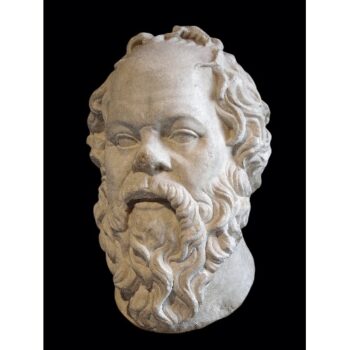[Hesiod counted some days as good, others as bad, because he did not recognize that the nature of every day is one and the same.” (Kahn 20, D 42)
Seneca offers an explanation of this that relates to the last fragment. “If a day is the time of twenty-four hours, all days are necessarily equal to one another, because the night possesses what the day has lost.” (Epistles 12.7, qtd in Kahn 303f. fn. 74)
The sameness of days could be merely a matter of their measurability. But here Heraclitus is speaking of sameness in reference to the goodness and badness of days. The sage-like, philosophical perspective that Heraclitus seeks is one that rises above our subjective experience. We see this in the way that he speaks of the dialectic in various passages. In the case at hand, we may view a good or bad day in reference to personal experience. But a day when one is injured is a day when another is finally healed. A day when one falls ill is a day when another is well. A special day, the day of one’s birth, is one day for one, another day for another. The objective perspective of the sage is to rise above the perspective of the individual. Everyday someone is born. And everyday someone dies. In this sense, everyday may be equally beautiful or equally tragic. There is a repetition of events, we might say, played out by different players.
Heraclitus however also attempts to rise above a view that is merely human. “The sea” he says in a celebrated passage, “is the purest and foulest of water: for fish it is drinkable and life-sustaining; for men undrinkable and deadly” (Fragment 70). Similarly we might see that on what an individual views as a good day she might eat a steak, but that will not be a good day for the cow.
For his part, Hesiod, speaks of certain times and days as auspicious for different activities. As he notes, “The ninth of the mid-month improves towards evening; but the first ninth of all is quite harmless for men. It is a good day on which to beget or to be born both for a male and a female: it is never an wholly evil day” (Works and Days, ll. 810-813). Similarly, he says, “Again, few know that the twenty-seventh of the month is best for opening a wine-jar, and putting yokes on the necks of oxen and mules and swift-footed horses, and for hauling a swift ship of many thwarts down to the sparkling sea; few call it by its right name” (ll. 814-818). Is Heraclitus here, more than anything else, just rejecting this kind of superstition?
A day is a day. Days haven’t been invested with qualities that make them per se good or bad for begetting children or for opening wine jars. Nor is their goodness or badness measured in reference to the feelings or well-being of those who live through those days. Days, we might even see in some analytic sense as neither good nor bad. Maybe nothing in fact does characterize a day, qua day, except for mathematical quantifiability after all: Days are just twenty-four hours.
